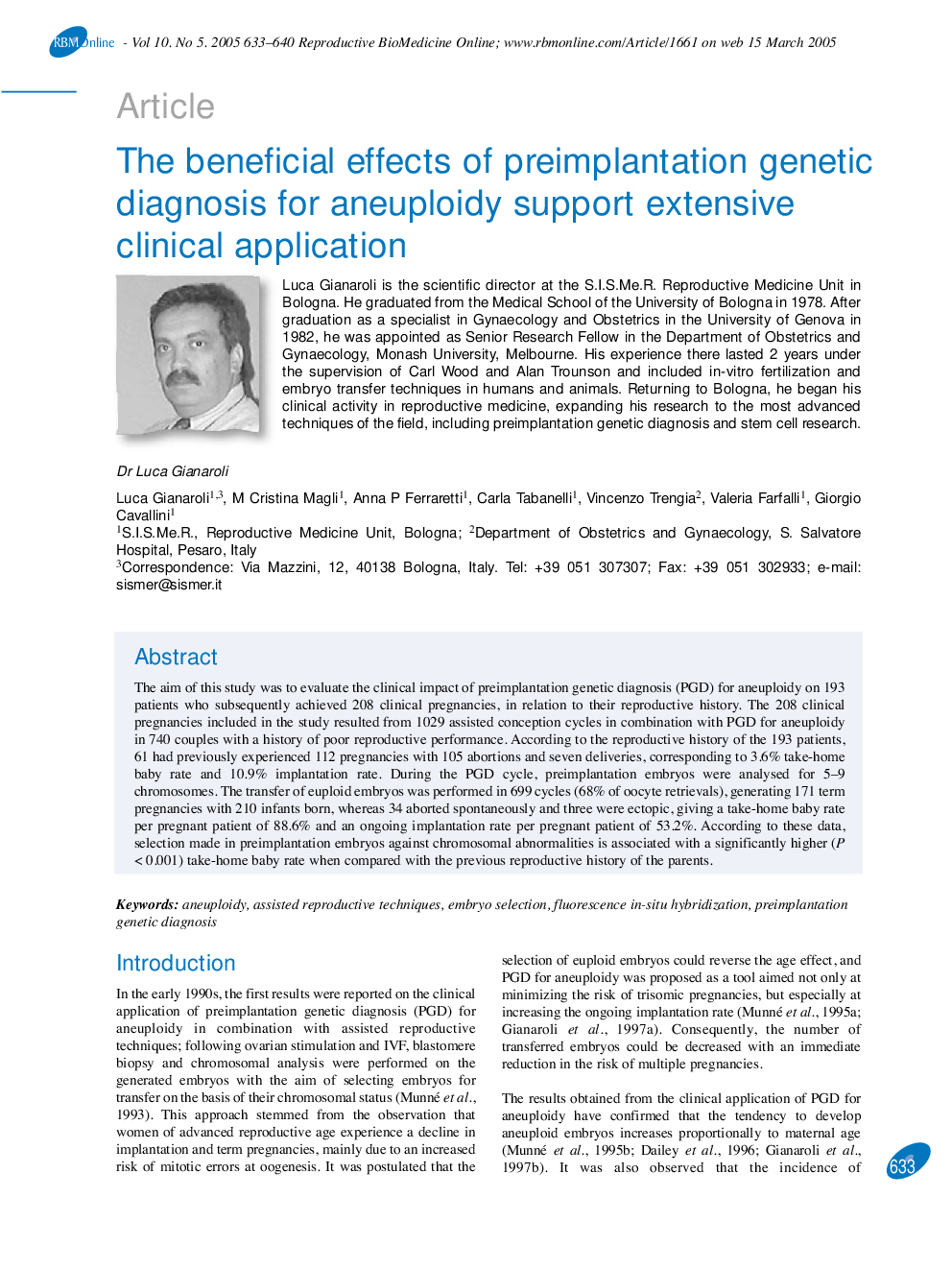| Article ID | Journal | Published Year | Pages | File Type |
|---|---|---|---|---|
| 9335334 | Reproductive BioMedicine Online | 2005 | 8 Pages |
Abstract
The aim of this study was to evaluate the clinical impact of preimplantation genetic diagnosis (PGD) for aneuploidy on 193 patients who subsequently achieved 208 clinical pregnancies, in relation to their reproductive history. The 208 clinical pregnancies included in the study resulted from 1029 assisted conception cycles in combination with PGD for aneuploidy in 740 couples with a history of poor reproductive performance. According to the reproductive history of the 193 patients, 61 had previously experienced 112 pregnancies with 105 abortions and seven deliveries, corresponding to 3.6% take-home baby rate and 10.9% implantation rate. During the PGD cycle, preimplantation embryos were analysed for 5-9 chromosomes. The transfer of euploid embryos was performed in 699 cycles (68% of oocyte retrievals), generating 171 term pregnancies with 210 infants born, whereas 34 aborted spontaneously and three were ectopic, giving a take-home baby rate per pregnant patient of 88.6% and an ongoing implantation rate per pregnant patient of 53.2%. According to these data, selection made in preimplantation embryos against chromosomal abnormalities is associated with a significantly higher (P < 0.001) take-home baby rate when compared with the previous reproductive history of the parents.
Related Topics
Health Sciences
Medicine and Dentistry
Obstetrics, Gynecology and Women's Health
Authors
Luca Gianaroli, M Cristina Magli, Anna P Ferraretti, Carla Tabanelli, Vincenzo Trengia, Valeria Farfalli, Giorgio Cavallini,
